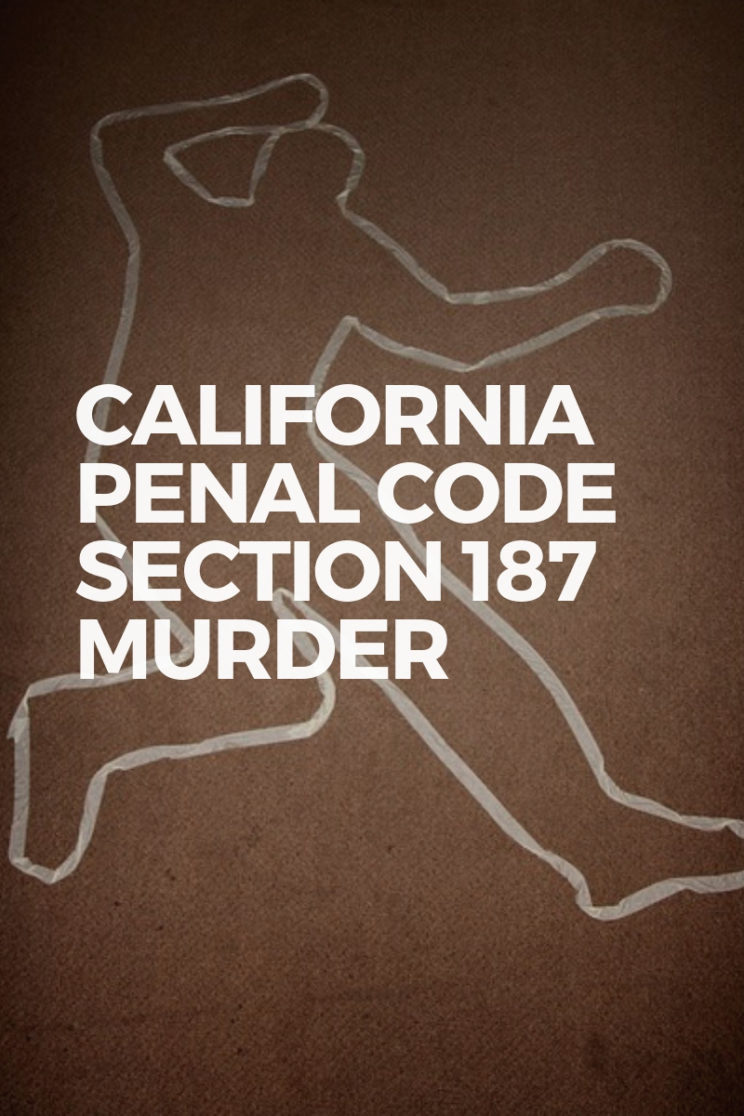California Penal Code Section 187 (a) defines murder as “the unlawful killing of a human being, or a fetus with malice aforethought.”
To prove murder, the following must be present:
- The defendant committed an act that resulted in the death of another person (or fetus)
- The defendant committed the act with malice aforethought
- The defendant killed without a reasonable excuse or justification.
Establishing Malice Aforethought
Under California murder law, Penal Code 187 (a), malice can be expressed or implied.
Proof of malice is enough to establish the state of mind necessary for murder. The defendant acted with express malice if there was an unlawful intention to kill the victim.
Elements of Implied Malice
- The defendant deliberately committed an act
- The probable and natural consequences of the act were dangerous
- The act was willfully conducted with knowledge of the danger and conscious disregard for human or fetal life.
California First-Degree Murder
According to California’s Penal Code a defendant can be convicted of first-degree murder if:
- The murder was committed either by use of a destructive device or explosive; or by lying in wait
- The crime was committed willfully, premeditatedly and deliberately
- A specifically enumerated felony was committed that resulted in death
Punishment for First-Degree Murder in California
According to California Penal Code Section 187 the defendant faces 25-years-to-life in the California State Prison for a first-degree murder.
In case the conviction is based on a “hate crime,” the defendant faces life in prison without any possibility of parole or early release. Factors that can lead to a conviction for a hate crime murder include the victim’s race, sexual orientation, disability, or nationality.
Punishment for Second-Degree Murder in California
According to California Penal Code Section 187 the defendant faces 15 years-to-life in State prison for a second-degree murder. This sentence can increase to:
- 20-years-to-life if the defendant killed the victim by shooting a firearm out of a vehicle with the intent of causing serious injury
- 25-years-to-life if victim is a peace officer
- Life without the possibility of parole if victim is a peace officer and defendant specifically intended to kill the officer or inflict serious bodily injury on the officer or killed the officer using a deadly weapon or firearm.
- Life without the possibility of parole if the defendant has previously served a sentence for a murder conviction
California Felony Murder Rule
Felony murder occurs during the commission of inherently dangerous felony.
Inherently dangerous felonies are felonies that are so dangerous to human life that the likelihood of death during the commission of the crime is very high. California’s felony murder rule refers to both first- and second-degree murders.
Actually it is not required that the defendant kill the victim in furtherance of the underlying felony. Any death that is reasonably connected to the felony is enough, regardless of whether it was intentional or accidental.
So, for prosecution under the felony murder rule, the following elements must be shown:
- Defendant had intention to commit the underlying felony
- Defendant either committed or attempted to commit the underlying felony
- There was more than a mere coincidence between the time and place of the murder and the other felony.
List of Felonies Which Fall Under Felony Murder Rule
The list of such felonies includes but is not limited to the following: Burglary, Torture, Arson, Carjacking, Robbery, Rape, Kidnapping, Mayhem.
Get Help Defending Murder Charges from an Experienced Lawyer
Hire a dedicated Glendale criminal defense lawyer to provide you with the legal services you require!
Our attorneys at KAASS LAW are highly dedicated to help our clients in every way possible. You can rely on our experienced lawyers in Glendale, Los Angeles, California, to carefully analyze the facts of your case to prove the facts necessary. We invite you to get in touch with us at KAASS LAW, 815 E Colorado St #220, Glendale, CA 91205, (310) 943-1171 any time!

